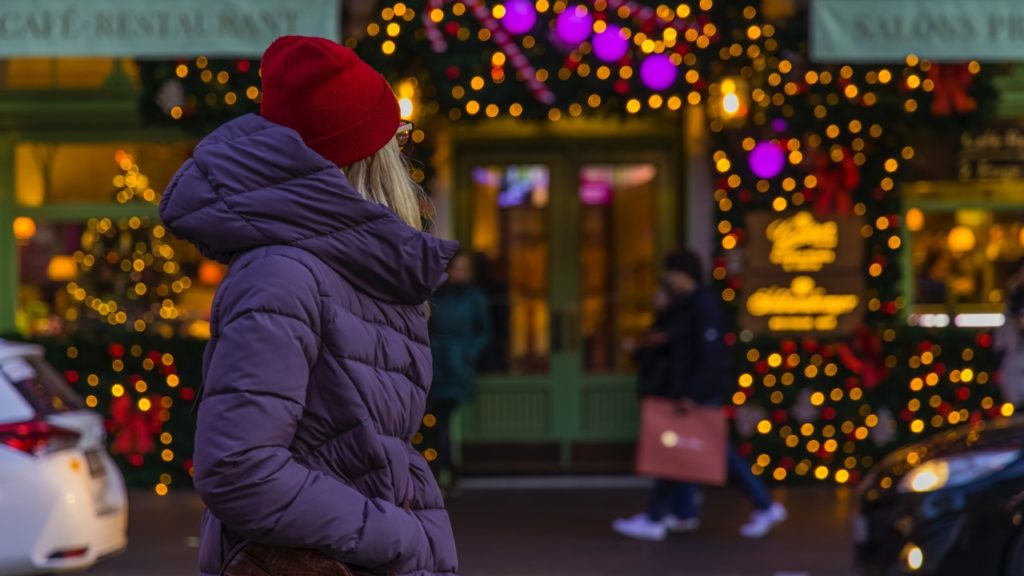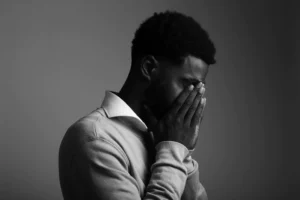At first, I thought COVID might be to blame for the unmanned Salvation Army bucket by my local Hobby Lobby. Salvation Army kettles have been used for holiday fundraising since the late 19th century, and the bell-ringing of hearty volunteers has heralded the Christmas season for as long as I can remember.
But then I went to the grocery store and (phew!) could hear the bell as soon as I got out of my car. So COVID didn’t win on that one.
COVID has, however, changed or canceled Christmas traditions like caroling at a retirement home, sitting on Santa’s lap at the mall, or visiting family for a crowded turkey dinner. At the first Christmas, Jesus entered our world in the middle of a Roman census, proving that He doesn’t wait for perfect conditions before entering our messes. How fitting that we celebrate His coming in spite of quarantines and mask mandates and other unfortunate realities.
COVID can’t stop Christmas. Even though we’ll probably have to change some of our plans, there have always been many ways to celebrate this special day. Consider these fun and historic facts about Christmas:
Jingle bells, past and present
In the 1920s, my great-great-uncle braved a blizzard (or at least the West Texan equivalent of one) to buy the only gifts his two youngest siblings would receive that Christmas: two candy canes. Compare that to the projected $998 spent on gifts this year by the average American.
Christmas was not officially recognized in America until President Ulysses S. Grant allowed federal D.C. employees an unpaid Christmas holiday in 1870. It would be almost 20 more years before President Benjamin Harrison brought in the first White House Christmas tree.
In North America, around 30 million Christmas trees are sold annually after growing for an average of seven years.
After 54 years on the air, “A Charlie Brown Christmas” made the news last month when public outcry forced the reversal of a decision to take Charles Schultz’s beloved Christmas special off national TV. “A Charlie Brown Christmas” was originally commissioned by Coca-Cola, and the bulk of the writing, producing and animating was done in a three-month window before its first airing on December 9, 1965. Unusual for its time, the TV special featured child actors and a reading of a lengthy Scripture passage.
Another Christmas classic, Charles Dickens’ “A Christmas Carol,” also came about quickly: Dickens wrote the entire story in about three weeks.
One of the most popular recent traditions, Elf on the Shelf, has only been around since the book by that name was published in 2005.
Joy around the world
Whether candy canes and Christmas trees brought from Germany, poinsettias introduced from Mexico, or the ugly Christmas sweater tradition borrowed from our Canadian neighbors, many of America’s Christmas customs originated outside of her borders. Yet there are still many worldwide traditions we have not experienced or adopted (yet).
In Japan, it’s common to eat KFC for Christmas — so common that the first Christmas orders often come in about six weeks before Christmas.
Many Australian families celebrate with a midday barbecue and a song about St. Nicholas delivering gifts with the help of kangaroos instead of reindeer.
Popular Christmas menu choices in Tanzania are spicy rice and meat and soft drinks.
In the Philippines, celebrations start in September and last until early January, while El Salvadoran celebrants set off fireworks for Christmas.
Many Nicaraguans commemorate Las Posadas with a nine-day performance depicting Mary and Joseph being turned away from several inns.
Christmas Eve dinner is the highlight of many Polish family celebrations, and is often served just as the first star appears in the night sky.
In Ethiopia, families and friends feast, play games, and attend church, but gift-giving is not a part of the Christmas festivities.
At the South Pole, residents of one scientific research center run a 2-3 mile race “around the world,” dashing through each time zone on their quest for the prize: a five-minute hot shower.
A thrill of hope
I love that people around the world celebrate when Jesus came to save the world. While many (even most) Christmas party-goers may not believe in Jesus any more than they believe in Santa Claus, I am grateful that so many of our cultures still honor this day.
We celebrate what we recognize as important, and what could be more important than the eternal gift of Christ? As our holiday plans shift and our usual traditions are tweaked, let’s preserve the reasons for our celebration. Let’s pray for those we know (or don’t know) who celebrate “a holly jolly Christmas” but miss out on the reason the angels sang.
Even in our imperfect circumstances, there are good tidings for us all. We have so much to celebrate! Maybe this year could even be the perfect time to start a new Christmas tradition.
Pass the KFC, please.
Copyright 2020 Lauren Dunn. All rights reserved.












